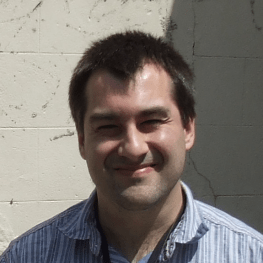The Quaker Practice of Embracing Difference
“I don’t think our understanding of ‘what we call God’ will ever be complete. Moreover, whatever is of God is bound to be beyond any clever myth we humans can devise. Yet, I do think that the divine gives us windows (decisive views) onto itself. One such radical disclosure is found in our Quaker foundation story, when in the midst of theological diversity, George Fox hears a life-changing voice say: ‘There is one, even Christ Jesus, that can speak to thy condition’. This voice tells Fox something definite (although not comprehensive) about God. Such a definitive moment encourages me to think that the various historical manifestations of the spiritual search are part of a single human story, with this same voice at its center.
[…] For me this is the same God who struggled with the world through silent eons. It is the same God who lived in and alongside emerging life. This same Spirit accompanied us down from the trees, and out of the caves. This is the same God who inspired everything eternal and good in the teachings of past sages of diverse faiths. It is the God who was poured out on a Roman cross. It is the ‘God of peace’ (Hebrews 13:20), one who prompted early Friends to lay down their weapons. But doesn’t a story-bound deity just invite exclusion? Not necessarily.
As many early Friends discovered, to be invited into the story of Jesus, means questioning who is and who is not included. Think of George Fox’s strangely tender remarks towards ‘heathens, Jews and Turks’. This Spirit possessing a story doesn’t entitle us to any kind of religious monopoly. Quite the opposite. My sense of theological inclusiveness comes from a positive rather than negative approach to truth. I affirm the value of different religious traditions, not because I can’t say for certain whether they are true, but because of what I know experimentally. I sense a power and life in the words of Scripture, which I cannot let go of, or rather will not let go of me. Because of this, when I encounter other faiths, I see at work John’s universal light of Truth ‘that gives light to everyone coming into the world’ (John 1:9). I know that despite the many differences between faiths, the Spirit of Christ can and does work through them. And although the details of this inner convergence frequently go beyond my understanding, I trust that unity and truth will be found: ‘I have other sheep that are not of this sheep pen. I must bring them also. They too will listen to my voice, and there shall be one flock and one shepherd’ (John 10:16).
Far from shutting down diversity, I think the older Christian dimensions of our Quakerism can actively deepen our sense of what universalism means; a sort of universalism through particularity. In this mode, we value the insights of others because of the shape of our own Quaker narrative. And since our story is not just about ‘spreading the word’ but deepening the conversation, we are in a good place to embrace difference.”
— Benjamin J. Wood, 2016
“Words, Diversity, and Quaker Identity”

Reader Reflection
How does diversity enrich your community?
Looking back on a long Spiritual Journey among Friends, much of what I have learned and been inspired by has come from people who are different from me, either in their backgrounds or theology. Surrounding ourselves with people like ourselves may be a human instinct, certainly seems to be a cultural norm in these times, but is not conducive to change and growth. The desire to be transformed and grow in our faith has been central to Friends from the beginning, from my understanding.
It is always, for me, a stretch to reach out to someone who is different. The fear of offending is very real for me, or the risk of the other person not being interested in me, dismissing me as an "old white guy". Nevertheless, on those occasions where I have been able to reach out, to be present, the outcome has almost always been positively transformative, in small or large ways and likely in both directions.
That said, there is also deep value in finding the ways in which we are similar: our shared joys, transformative events, fears, hopes. Our growth as individuals and especially as a faith community depend to some degree on this. One of the greatest joys is to be able to reach across our diversity and differences to encounter those shared qualities, experiences, places of being in each other; but it is not always easy. Fortunately, we have a Guide.
Joe S., Portland, OR, USA
My husband and I became convinced Quakers because we were welcomed by the Quakers with absolute Love and compassion. What I have learned as a gay man in my Quaker walk is to acknowledge and lay down my discrimination, either conscious or unconscious! Especially the discrimination that I gave to Evangelicals that had shunned me. To forgive and not assume everyone that is Evangelical is homophobic.
Kurt G.-H., Granbury, TX, USA
Interacting and worshipping with people of diverse backgrounds challenges me and helps me articulate and develop my own beliefs. In those encounters and relationships, I can learn so much more than by only interacting with people who are very similar to me. Deep listening to others helps me to stretch myself and to grow.
Lisa M.-S., Evergreen, CO, USA
Next Week’s Query
When conflict arises in your community, how do you respond?

This Week’s Messages
Celebrated for My Entire Self
I Feel the Same Spirit
Common Ground for Understanding
How Do We Embody the Beloved Community?
Uniqueness Makes us Whole
Painting Sanctuary











